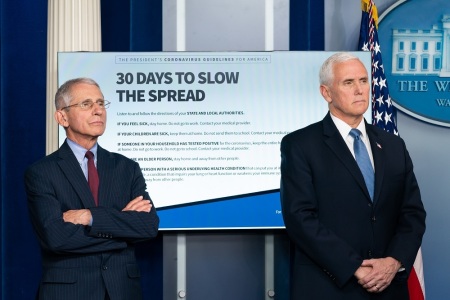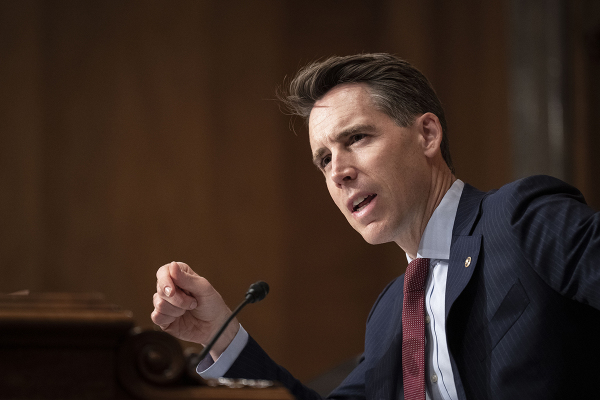Dr. Fauci’s personal story

Dr. Antonio Fauci has served as director of the National Institute of Allergy and Infectious Diseases since 1984. He grew up in Brooklyn, New York, the second child of first-generation Italian American parents. Growing up, he spent his days playing baseball, basketball, and football, as well as working for his father’s pharmacy.
He graduated first in his class from New York’s Cornell Medical College before beginning his long career at the institute. He has helped lead the fight against AIDS, West Nile, anthrax, SARS, and swine flu.
Dr. Fauci has become famous in recent weeks, of course, for his work in urging us to “flatten the curve” through social distancing. But as he often notes, other members of the White House coronavirus task force and modeling researchers are working tirelessly and anonymously to support and promote this critical effort.
In related news, Bill Gates is making headlines with his commitment to donate billions of dollars to encourage the development of a vaccine for COVID-19. But the unnamed researchers his finances will support will be the women and men who actually find the cure the world needs so urgently.
We know of Jonas Salk, the man who discovered the vaccine for polio. But can you name the person who developed a vaccine for smallpox? (Edward Jenner in 1796.)
Before such treatment, three of 10 people who contracted the disease died. Researchers unknown to most of us are currently at work developing better treatments for malaria, AIDS, heart disease, cancer, and a host of other diseases.
Unnamed Heroes
Let’s consider the theme of unnamed heroes in the context of one of the greatest heroes in Christian history: Paul the Apostle.
After his conversion on the road to Damascus (Acts 9), we know of Ananias, the disciple who first ministered to Saul in that city. And we are familiar with Barnabas, who first advocated for him in Jerusalem.
But note that after Saul began preaching in Damascus and “the Jews plotted to kill him” (Acts 9:23), unnamed individuals (perhaps in the local government) made this plan known to Saul (v. 24). Then, unnamed disciples “took him by night and let him down through an opening in the wall, lowering him in a basket” (v. 25).
When he moved to Jerusalem and continued preaching powerfully, his enemies there “were seeking to kill him” as well (v. 29). Once again, unnamed Christians “learned this [and] they brought him down to Caesarea and sent him off to Tarsus” (v. 30).
These unnamed heroes played a direct role in a ministry that took the Gospel across the Roman Empire and produced half of the New Testament.
We will not know on this side of Heaven all the people whose faithfulness in prayer and service has been instrumental in our faith and ministry. I am thinking of the volunteers who helped create the bus ministry that led me to Christ as a teenager and the donors who built the Christian university I attended. Christians contributing through our denomination helped pay for my seminary education as well.
I pastored four churches; one was founded in 1857, another in 1884, a third in 1886, and a fourth in 1939. I look forward to meeting in Heaven those who served Jesus so faithfully across so many generations before I joined their congregation’s ministry.
We are truly “surrounded by so great a cloud of witnesses” (Hebrews 12:1).
This fact should encourage us to be grateful to those to whom we are indebted spiritually. But it should also encourage us to serve faithfully today without seeking recognition, knowing that God knows our faithfulness and will use us for his glory.
The next person you serve may be the next Apostle Paul.
This article was first published at the Denison Forum





















